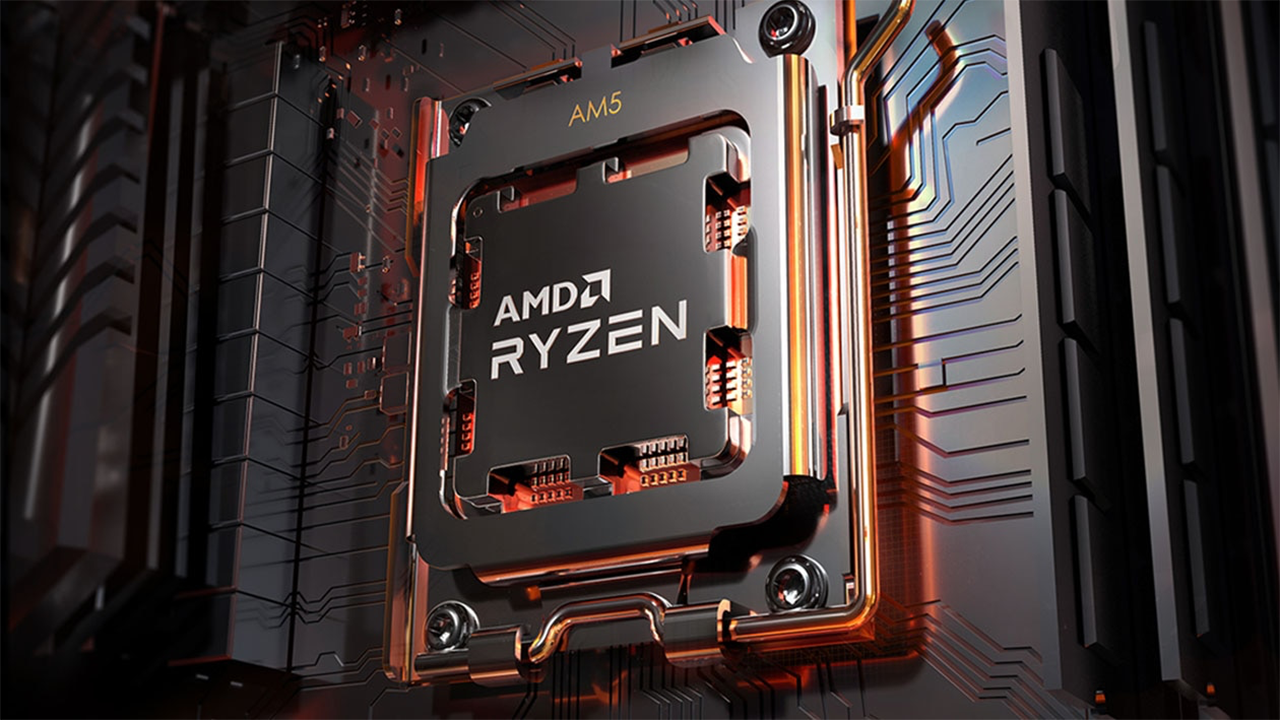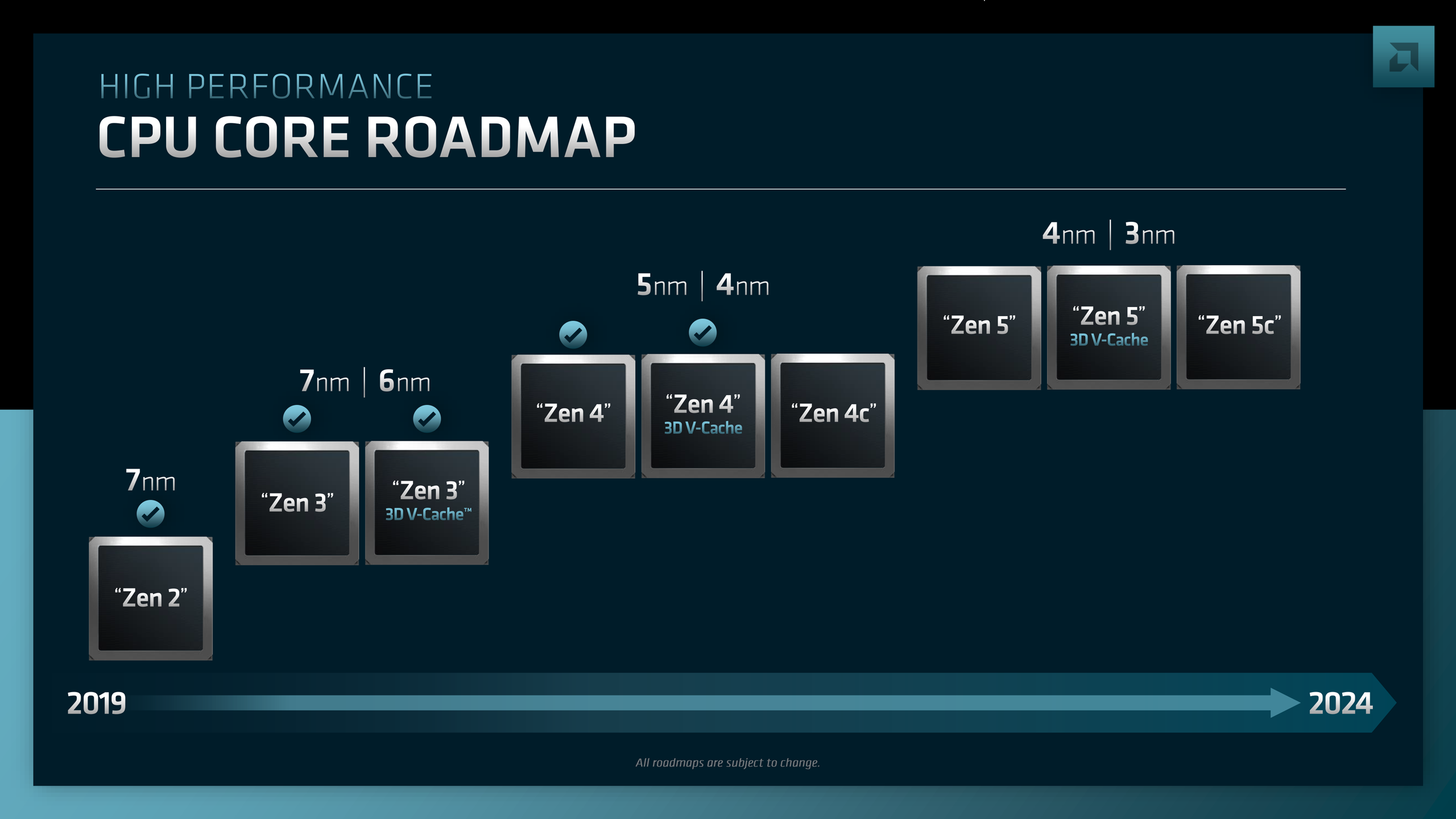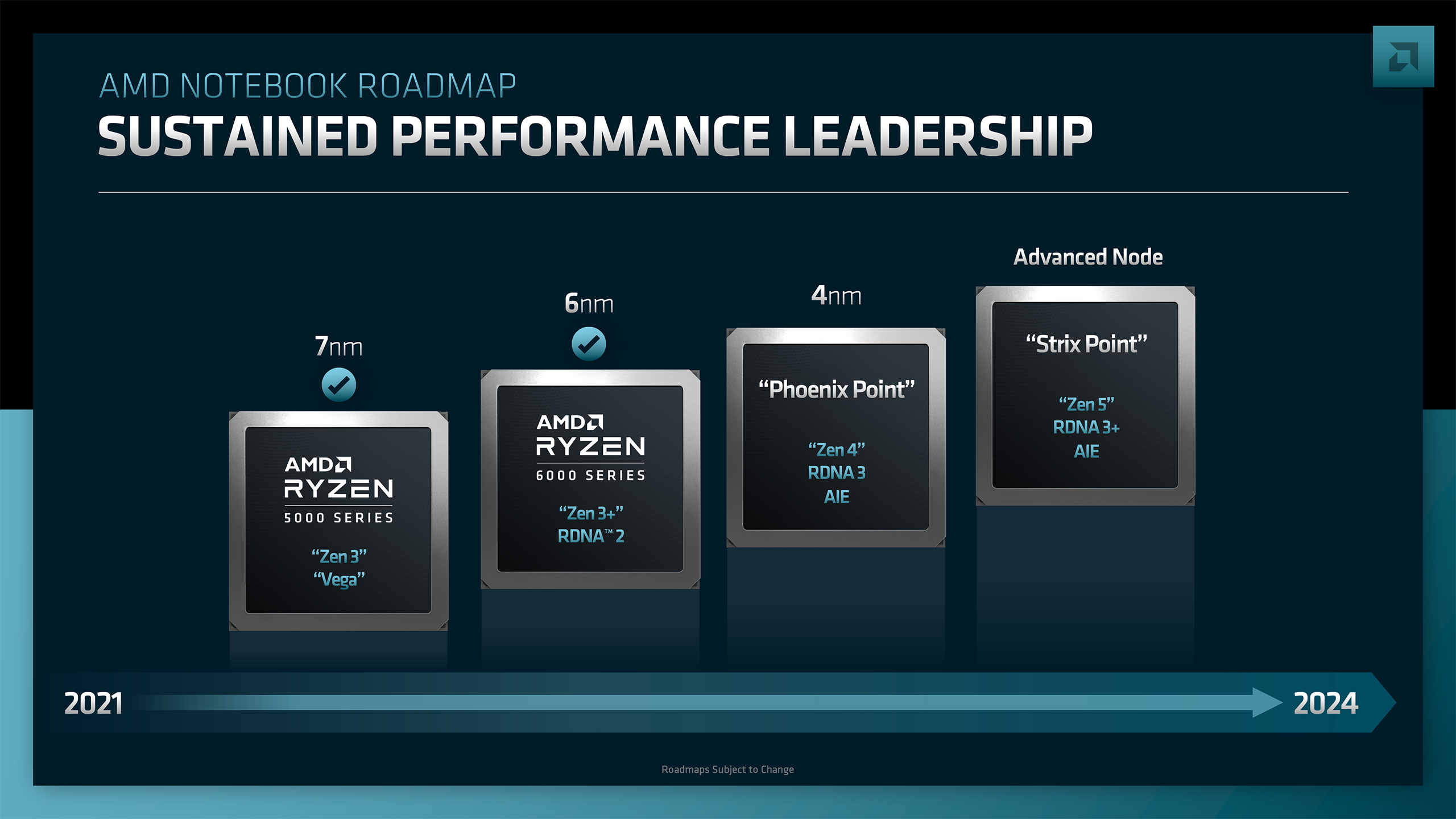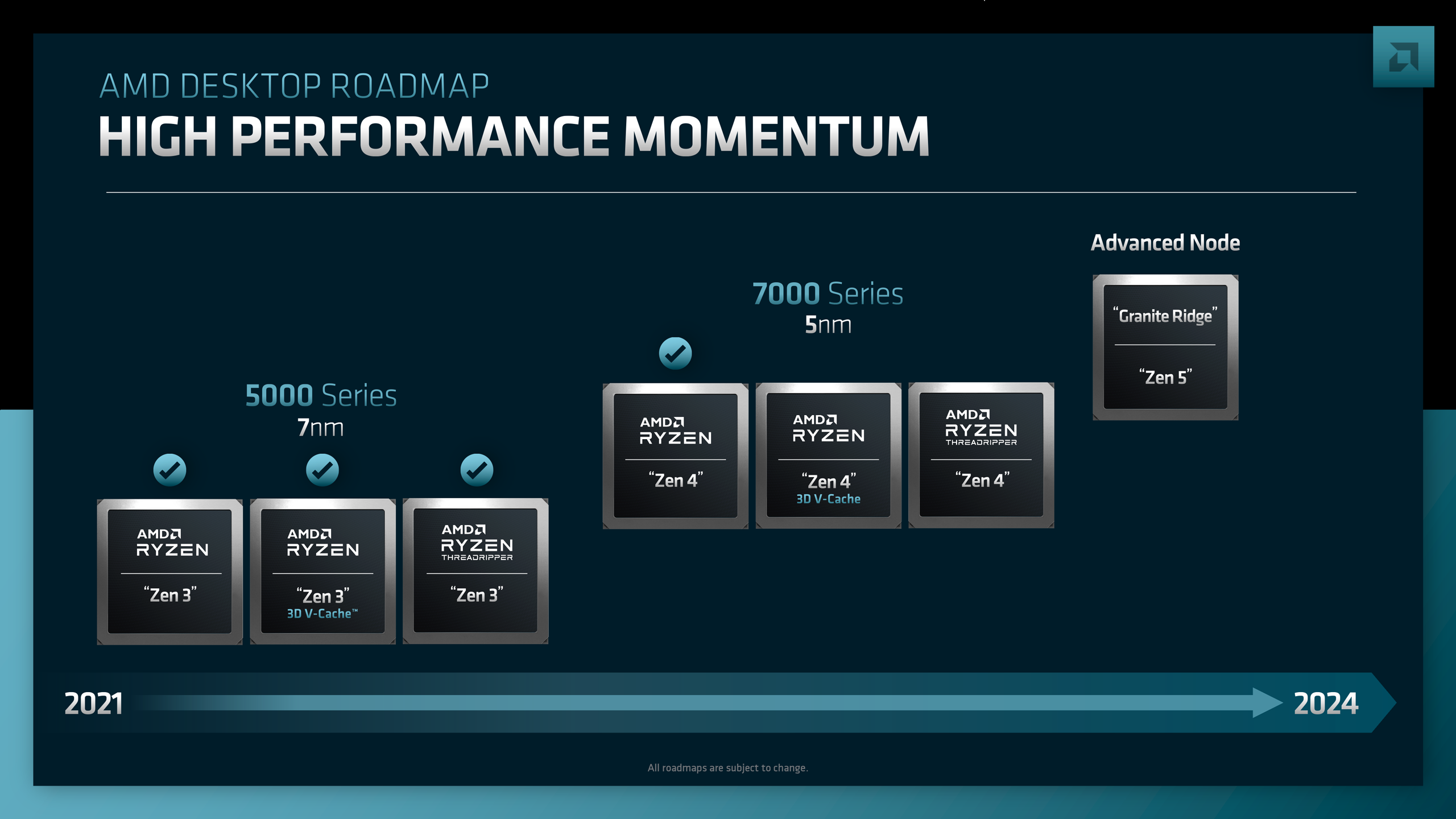
When Gigabyte's enterprise unit revealed last week that AMD would introduce a successor to its Ryzen 7000-series CPUs this year, it made quite a splash among enthusiasts. But the company has removed the claim about the launch timeframe of AMD's Ryzen 8000-series products and changed the wording of its press release since then, as noted @9550pro and ComputerBase.
"[We] do not know when the Ryzen 7000 successor will be released," Liam Quinn, a spokesman for Gigabyte, told TechRadar, confirming that the phrasing was a mistake. "[We will] make a comment on the press release to clarify but keep our original wording."
AMD's official roadmap slides released in mid-2022 indicate that the company planned to release CPUs based on its Zen 5 and Zen 5c microarchitectures by 2024 (the year in the bottom right corner of AMD's roadmap slides typically indicates 'by the beginning of' rather than 'by the end of,' unless AMD changed something in its way of presenting data), which means that it was reasonable to expect Zen5-powered Ryzen 8000-series processors this year.

In fact, AMD's public client roadmaps clearly indicate that its Zen 5-based Strix Point CPU for notebooks and Granite Ridge CPU for desktops will be released by 2024. This is perhaps why Gigabyte stated this in its press release.


However, a Zen 5/Zen 5c launch in late 2023 would not exactly fit AMD's cadence of releasing new microarchitectures for client PCs roughly every two years. Furthermore, given the slow demand for PCs, releasing an all-new CPU family this year might be counterproductive. To that end, even if AMD previously had plans to launch Zen 5-based products in calendar 2023, such plans might have changed by now.
"The next generation of AMD Ryzen desktop processors that will come out later this year will also be supported on this AM5 platform, so customers who purchase these servers today have the opportunity to upgrade to the Ryzen 7000 series successor," the original press release read.
"The next generation of AMD Ryzen desktop processors will also be supported on this AM5 platform, so customers who purchase these servers today have the opportunity to upgrade to the Ryzen 7000 series successor," the altered statement reads.







